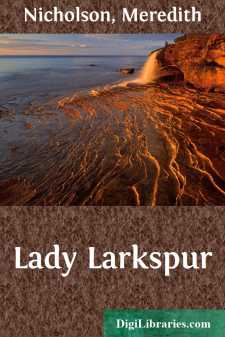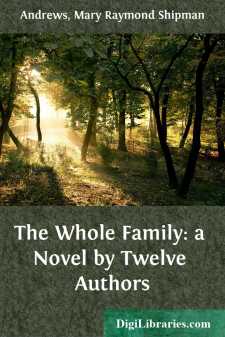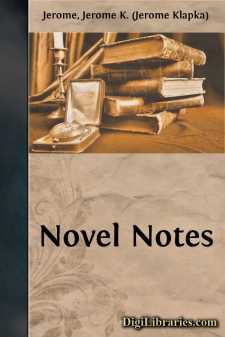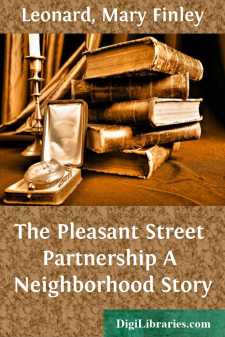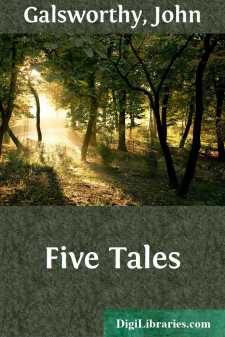Fiction
- Action & Adventure 180
- Biographical 15
- Christian 59
- Classics 6965
- Coming of Age 5
- Contemporary Women 3
- Erotica 8
- Espionage/Intrigue 12
- Fairy Tales, Folklore & Mythology 236
- Family Life 169
- Fantasy 117
- Gay 1
- General
- Ghost 32
- Historical 808
- Horror 43
- Humorous 160
- Jewish 25
- Legal 4
- Medical 22
- Mystery & Detective 315
- Political 49
- Psychological 41
- Religious 64
- Romance 159
- Sagas 11
- Science Fiction 730
- Sea Stories 113
- Short Stories (single author) 537
- Sports 10
- Suspense 1
- Technological 8
- Thrillers 2
- Urban Life 31
- Visionary & Metaphysical 1
- War & Military 173
- Westerns 199
General Books
Sort by:
by:
Robert Herrick
The Four Corners in Middleton made a pleasant drive from the university town of Camberton. Many a time in the history of the house a party of young fellows had driven over the old turnpike that started where the arsenal used to stand in the sacred quarter of Camberton, and as the evening sun gilded the low, fresh-water marshes beyond Spring Pond, would trot on toward the rolling hills of Middleton....
more...
THE "TROOPS" "It was hard luck," said Searles, "that I should spend a year writing a play for a woman only to find that she had vanished—jumped off the earth into nowhere. This was my highest flight, Singleton, the best writing I ever did, and after the vast pains I took with the thing, the only woman I ever saw who could possibly act it is unavailable; worse than that, absolutely...
more...
I. THE FATHER, by William Dean Howells As soon as we heard the pleasant news—I suppose the news of an engagement ought always to be called pleasant—it was decided that I ought to speak first about it, and speak to the father. We had not been a great while in the neighborhood, and it would look less like a bid for the familiar acquaintance of people living on a larger scale than ourselves, and less...
more...
PROLOGUE Years ago, when I was very small, we lived in a great house in a long, straight, brown-coloured street, in the east end of London. It was a noisy, crowded street in the daytime; but a silent, lonesome street at night, when the gas-lights, few and far between, partook of the character of lighthouses rather than of illuminants, and the tramp, tramp of the policeman on his long beat seemed to...
more...
Temptation came to me when I was in the worst possible position to resist it. It is a way temptation has. Whenever I swear off drinking invariably I am invited to an ushers' dinner. Whenever I am rich, only the highbrow publications that pay the least, want my work. But the moment I am poverty-stricken the MANICURE GIRL'S MAGAZINE and the ROT AND SPOT WEEKLY spring at me with offers of a...
more...
GEORG EBERS An Egyptian PrincessGeorg Moritz Ebers, a great Orientalist and Egyptologist, was born in Berlin on March 1, 1837, received his first instruction at Keilhau in Thuringen, then attended a college at Quedlinburg, and finally took up the study of law at Göttingen University. In 1858, when his feet became lame, he abandoned this study, and took up philology and archæology. After 1859 he...
more...
The scout stood where three roads cut three green tunnels in the pine woods, and met at his feet. Above his head an aged sign-post pointed impartially to East Carver, South Carver, and Carver Centre, and left the choice to him. The scout scowled and bit nervously at his gauntlet. The choice was difficult, and there was no one with whom he could take counsel. The three sun-shot roads lay empty, and the...
more...
CHAPTER FIRST A WAVE OF IMPROVEMENT Pleasant Street was regarded by the Terrace as merely an avenue of approach to its own exclusive precincts. That Pleasant Street came to an end at the Terrace seemed to imply that nothing was to be gained by going farther; and if you desired a quiet, substantial neighborhood,—none of your showy modern houses on meagre lots, but spacious dwellings, standing well...
more...
by:
John Galsworthy
THE FIRST AND LAST "So the last shall be first, and the first last."—HOLY WRIT. It was a dark room at that hour of six in the evening, when just the single oil reading-lamp under its green shade let fall a dapple of light over the Turkey carpet; over the covers of books taken out of the bookshelves, and the open pages of the one selected; over the deep blue and gold of the coffee service on...
more...
CHAPTER I. “There is something in this climate, after all. I suppose there are not many places where one could lie on the shore in December, and enjoy the air as much as I have done for the last two hours.” Harry Molyneux turned his face seaward again as he spoke, and drank in the soft breeze eagerly; he could scarcely help thanking it aloud, as it stole freshly over his frame, and played gently...
more...



